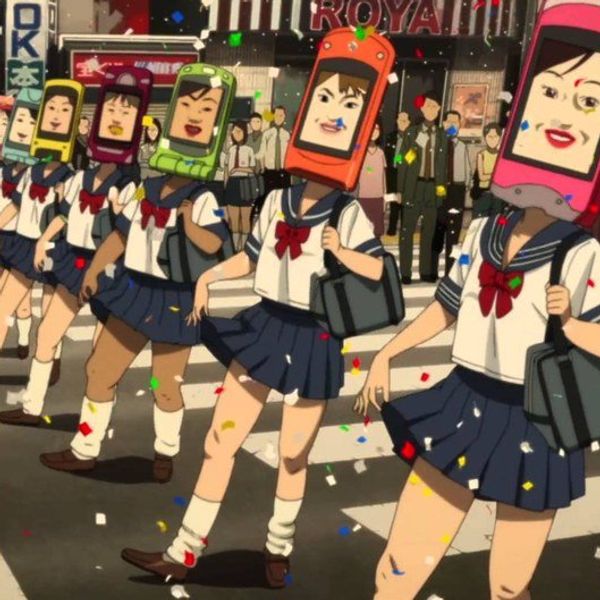I've always been rather fond of the 1980's, not only for historical phenomena, but also its pop culture. Particularly, in the realms of Japanese animation, one specific trend has stood out to me. Starting as early as 1982, Japanese animators began to show revived interest in the space opera genre; with popular works such as "Star Wars" and the long-standing "Star Trek" series gaining critical acclaim, the anime industry wasted no time in producing new sci-fi centered works to keep up with the growing fan base. It should be noted that, in my following discussion, I purposefully overlook the titanic "Gundam" franchise, not because it lacks a sci-fi setting, but because it aligns with the Mecha genre more than anything else. I have nothing against that series-- it's excellent stuff-- but I do find it to be of a different nature than the works I'll be talking about today.
One of the first chief architects of this movement is undoubtedly Leiji Matsumoto. Matsumoto's work began a little earlier than the others, having already released "Galaxy Express 999" in 1978. His defining work, however, is easily "Space Pirate Captain Harlock," especially the series of the same name that started up in 1984. The figure of Harlock uses the sort of rugged scoundrel archetype similarly evinced by characters such as Han Solo and others, but with a more clear-cut moral compass. In his adventures aboard the starship Arcadia, he must constantly fight against tyrannical powers bent on suppressing the pure individualism that Harlock and his crew stands for. In this and the other incarnations of Harlock's tale, Matsumoto raises questions of freedom, self-validation, and notions of a homeland, and this has something different to offer to each of its viewers.
Another innovator of the space opera anime genre, Noboru Ishiguro, took the science fiction setting to an even greater scale through his adaptations of sci-fi novels. Several weeks ago, I stumbled upon Ishiguro's magnum opus quite by accident, and have since then been rather taken with his extensive masterwork, "Legend of the Galactic Heroes," from 1988. The series setting depicts an intense and seemingly unending civil war between a democratic coalition of planets, and, you guessed it, a galactic empire. Now, at first glance, that comes off as a bit clichéd, even a little average for standard space opera. The genius of this narrative, however, isn't merely some discounted "Star Wars" story plot: it's a criticism on the evils of war, a highlighting of the absurdities of high society, and an inverted plot progression of a democracy steeped in corruption and militarism run afoul, and an autocracy collapsing from within and making strides towards humanitarian beliefs and government. The visuals can be praised for their technological limitations, but the true gem of this series is the incredibly detailed writing. Even today, "Legend of the Galactic Heroes" remains a cult classic and is frequently paid homage by later works.
Now don't get me wrong, there's a multitude of these works that follow the space opera framework. There are (at this point anyways) about as many anime as there are people that watch it, and maybe sci-fi isn't really your speed, or perhaps you aren't a big fan of the older graphic styles, but I encourage you to take a leap of faith with this trove of titles. As the cosmos are endless, so too are the adventures and tales of these animated space odysseys, and I'm certain you'll find one to connect with.



















